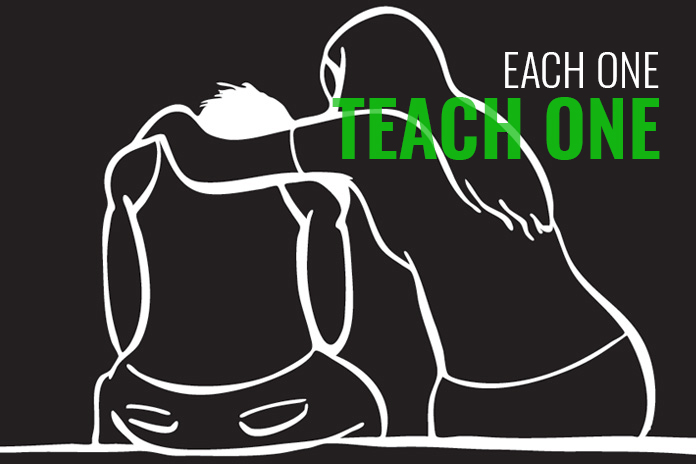How Much Support Does It Take? Overcome A Mental Health Struggle

A 2007 Alive survey of 1000 people with mental health struggles indicated that over 84% of respondents didn’t receive sufficient support to receive the tools and skills needed to overcome a mental health struggle. Because mental health struggles result from many years filled with events like adverse childhood experiences, adult violations, relationship fractures, traumas and chronic stress, achieving a healthy psychology is only possible through a comprehensive multi-strategy approach. Such an approach utilizes advanced behavioral science and is administered over a sufficient period of time. The developments in the advance behavioral sciences play a key part in the continuing goal to improve success rates for those who need help. In a parallel sense, consider the likelihood of complex heart surgery procedures being carried out without the use of constantly evolving advanced equipment and procedures. There would be the consistent high success rates we see today. Dealing successfully with mental health struggles requires the same kind of attention to new findings and their incorporation into treatment.
ORIGINS OF A MENTAL HEALTH STRUGGLE
The difficult events we experience can create intense amounts of fear, anxiety, anger, shame, stress and deep sadness. If these experiences are chronic, new neural pathways are laid in the brain, modifying our perceptions, memories and thought processes to be dominated by these negative experiences. These neural pathways can be seen as patterns of thoughts and emotions that one finds difficult to shift out of. These are the ruts in the Life’s road that your tires keep falling into.
John is a perfect example for this discussion. Any threat to his finances triggers intense fear and anxiety. This comes from living below the poverty line as a child and experiencing his parents’ constant fear of being short of money and not making enough. As an adult, John has experienced these same fears and anxieties because neural pathways were associated with these emotions were created while growing up. These pathways that are easily triggered by the unanticipated costs that are associated with things like his car breaking down. This is particularly true if the cost for repair is more than expected. Likewise, his fears and anxieties are easily triggered when his employer puts him on notice that the company will have to cut back to a 4-day week due to the economic slowdown. Although it’s true that the unexpected repair and cut in work hours will reduce John’s income and savings, he is far from living below the poverty line of his childhood. Nonetheless, the neural pathways set down by his childhood experiences result in catastrophic thoughts that tell him, “we will be broke, we are not going to make it.” These thoughts, in turn, create intense levels of fear and anxiety, resulting in conflicts between him and his wife.
It is possible for John to learn how to overcome these unhealthy thinking patterns. However, it will require a proper treatment plan that can help him build awareness of how these unhealthy thoughts and emotions from current events opens a reservoir of pain from past events.
WHAT IS THE PROPER TREATMENT PLAN TO OVERCOME A MENTAL HEALTH STRUGGLE?
Over the past 15 years, the Alive clinical team has observed the effectiveness of a broad spectrum of treatment plans, with counseling sessions ranging from two per week to a full two-month inpatient program. What we have learned from these observations is that for successful recovery, most people:
–a 2-week core program at the Alive Wellness Centre that allows participants to create awareness of their psychological functions and skills to achieve a healthier state
–one week back home with after-care support to begin the process of learning how to implement new lifestyle habits and skills to better manage their psychological well-being and relationships.
–one week back at the Alive Wellness Centre for review of implementation processes back home and learn new strategies for more effective implementation
–then 2-3 months of after-care, with the therapist and mentors conducting 2 one-on-one sessions per week, as well as contact via a smartphone app to maintain daily and constant engagement.
WHY MOST CURRENT MODELS OF TREATMENT ARE NOT SUFFICIENT:
The typical North American model for overcoming mental illness is to receive a cocktail of medications from a physician and/or see a counselor once or twice a week. This, unfortunately, does not work for most people. Mental health struggles, like those experienced by John, are now affecting 1 in 5 people. To succeed at achieving mental health well-being, people require a minimal level of support comparable to the Alive model described above. Change takes time because it doesn’t just consist of changing one’s mind, but of changing one’s behavior. To change behavior, it is necessary to change those neural pathways that may have taken a lifetime to form. Luckily, the brain’s neuroplasticity, or its ability to change, means that with a certain amount of training and time, it is possible to shift thinking and feelings from falling into the neural ruts. That means it is possible for anyone to create positive changes and restore joy, happiness, peace, contentment, and healthy interpersonal relationships.
To learn more above how the Alive for Wellness program can help you or a loved one overcome a mental health struggle, contact us by phone at 250-862-1927 or email vic@strongmentalhealth.net or visit www.aliveforwellness.com.






